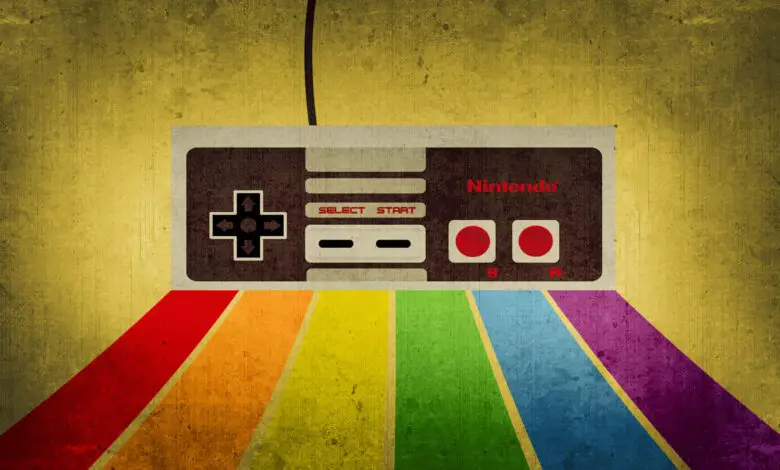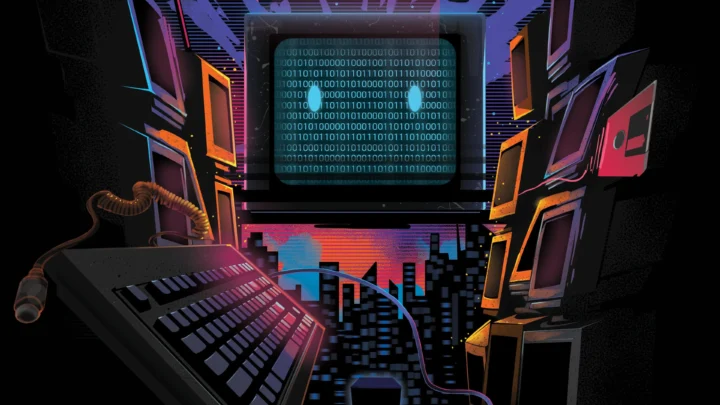Australia Leading the Appreciation for Retro Gaming

Last year the world was thunderstruck (if you will forgive the pun) by the amount of money Australians spend on gaming. The overall figure for 2022 was around $2.5 billion – in a country of only about 25 million people.
This was partially explained by Australia’s growing reputation as a nation of tech geeks. Australia has always been an early adopter of new tech, for example, smartphones and crypto were both adopted faster here than anywhere else.
Also, almost a million Aussies work in tech, and it is the third highest contributor to GDP. There’s more to 21st-centuryst Australia than mining and sheep farming, that’s for sure.
Acknowledging an art form

Australians’ expenditure on gaming surpasses that on movies, music, or books, a statistic that speaks volumes about the country’s cultural priorities. This preference isn’t indicative of a lack of depth or sophistication; rather, it mirrors a quintessential Australian trait: a preference for active engagement over passive consumption. Australians are known for their ‘doer’ attitude, a characteristic that aligns perfectly with the interactive nature of video games.
This inclination towards gaming over more traditional forms of entertainment is rooted in the interactive essence of the medium. Unlike movies or books where the audience is a passive spectator, video games offer an immersive experience where the player is an active participant. This aspect of gaming resonates strongly with the Australian ethos. The ability to influence outcomes and engage directly with the narrative aligns with the national preference for hands-on experiences and straightforward, no-nonsense entertainment.
Gaming, in this context, is seen as more than just a pastime; it’s a form of engagement that challenges and stimulates the player. This level of engagement is a key reason why Australians have been quick to recognize and appreciate video games as legitimate art forms. They see the value in the storytelling, creativity, and technical artistry that go into game development.
The comparison of video games to classic cinema, like equating ‘Red Dead Redemption’ to ‘The Good, The Bad and The Ugly,’ underscores this point. Just as classic films are celebrated for their storytelling, cinematography, and direction, video games are increasingly being recognized for their narrative depth, artistic design, and immersive gameplay. Australians understand that creating a compelling video game requires a blend of artistic vision, technical expertise, and storytelling prowess, akin to any other recognized art form.
Retro classics deserve recognition – from the arcade or the casino
When you acknowledge games in this way, it forces you to think. We mentioned a classic movie. But then there are albums like Dark Side of the Moon. Books like Anna Karenina. Do they have their equivalents in gaming, titles that will still be popular, in these examples, 50 or 150 years later?
We can already answer that question to a certain extent. Super Mario is a classic that was released in 1985 that people still enjoy playing today. Other games launched in 1985 include Exed Exes, Gauntlet, Battle City, Paperboy, Ghosts n Goblins. Just the same as if we looked at other 1973 albums alongside Dark Side, some are classics, some disappear into history. Our brief look at 1985 shows more hits than misses, though!
It’s not just arcade games that can become retro classics. Just look at casino games for example. This is a particularly popular niche among Australians, and although their primary passion is pokies, the shift towards online play has provided an opportunity for punters to revisit some classics. if you are interested in checking how online blackjack works, be sure to visit https://www.casinoaus.net/casino-games/online-blackjack//
A growing niche

Retro gaming, which refers to playing and collecting older video games and consoles, is becoming increasingly popular, especially in Australia. The country understands that games from decades past are more than just old software; they are a part of our cultural heritage, akin to classic albums or movies.
The allure of retro gaming lies in its simplicity and the fond memories it evokes. These games remind players of a time when gameplay was straightforward yet challenging, graphics were pixelated yet charming, and stories were engaging despite technological limitations. Retro games have a unique aesthetic and appeal that modern games, despite their advanced graphics and complexity, can’t replicate.
The rise of retro gaming in Australia reflects a broader trend of preserving and celebrating vintage art forms. Just as there is a market for classic films, vinyl records, and vintage fashion, there is a growing appreciation for the games that laid the groundwork for today’s gaming industry. Retro gaming is not just about playing old games; it’s about preserving a piece of history and understanding the journey of technological and creative advancements in gaming.
This growing niche has led to the emergence of dedicated retro gaming shops, online communities, and events where enthusiasts can share their love for classic games. It has become a way for different generations to connect, with older players reliving their childhoods and younger players discovering the origins of modern gaming.
Furthermore, the gaming industry has started to recognize the value in this nostalgia, leading to the re-release of classic consoles and games, sometimes with updated features or remastered graphics. This not only caters to the nostalgia of older gamers but also introduces newer generations to the foundational games of the industry.
The Bottom Line
By embracing retro gaming, Australia is not only preserving an essential part of its digital heritage but is also bridging generational gaps, creating a shared space where nostalgia and new discoveries coalesce.
This movement towards retro gaming appreciation highlights a deeper understanding that these games are more than mere entertainment; they are artifacts of technological innovation and creativity.
They serve as a window into the past, offering insights into the evolution of digital entertainment and the societal values reflected in these games. As such, Australia’s leadership in this area is pivotal, setting an example for the rest of the world in how to honor and celebrate the roots of the gaming industry.
